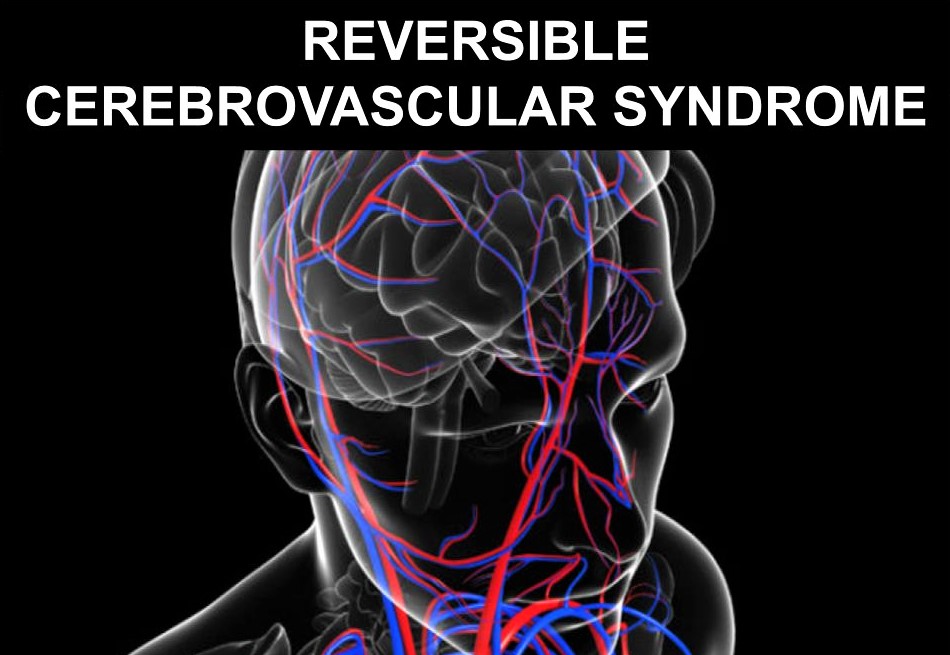
Reversible cerebral vasoconstriction syndrome (RCVS) represents a medical condition in which reversible multifocal narrowing of the cerebral arteries occur and manifest in intense “thunderclap” headache; oftentimes associated with neurological deficits.
RCVS is usually abrupt in nature, causing very intense, sometimes excruciating pain, which peak within seconds. Unlike Subarachnoid hemorrhage, headaches associated with reversible cerebral vasoconstriction tend to reoccur over a span of days to weeks. Provoking factors include orgasm, physical exertion and acute stressful or emotional events. Valsalva maneuvers such as straining, coughing and sneezing may also trigger these types of headaches.
In addition, some patients may experience focal neurological deficits to include unilateral muscle weakness, tremor, ataxia and aphasia. Visual disturbances ( blurred vision, seeing double) may also be associated with RCVS.
All patients who present with one or more thunderclap headaches must be evaluated and treated as a medically emergency, beginning with an evaluation for potentially serious secondary causes.
By: Jordan Shankle, PA
